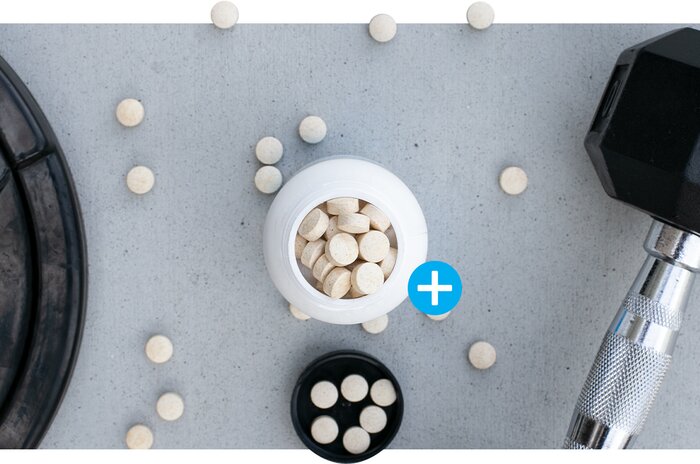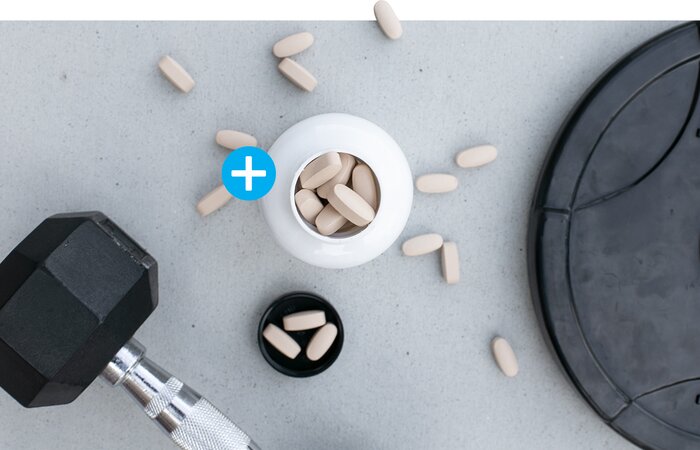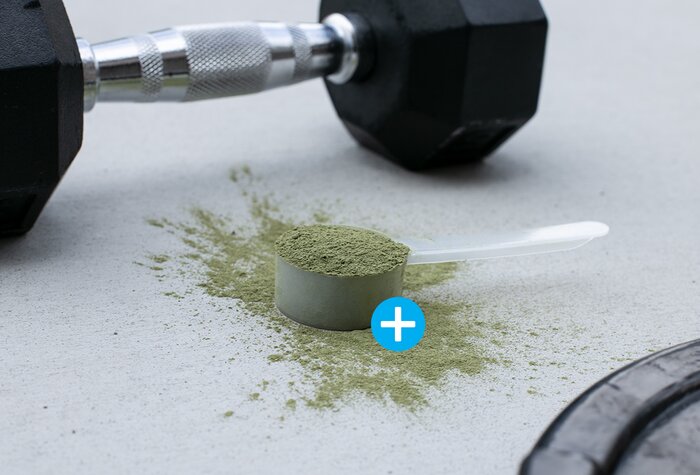Support Your Immune System | Immune-Boosting Supplements | Zinc Guide | Vitamin C Guide | Vitamin D Guide | Greens Supplements Guide
Staying healthy takes a multi-pronged approach. It starts with regular exercise, a nutritious diet, adequate sleep, and stress management. Those are the essentials, no matter how "in shape" you may be! Supplements can also help ensure your immune system is running as close as possible to 100 percent when the day comes that you need to be resilient against the world at large.
What many immune formulas have in common is their antioxidant properties. Antioxidants are substances that support your immune system by neutralizing free radicals to help protect cells from damage. Sound complicated? It is. But here's the good news: The most science-backed supplements for your immune system are actually pretty basic. You might already be taking some of them, in fact.
Here are four supplements you should prioritize for your immune health. But remember: Like exercise or anything else that you want to help change your life, you need to take them regularly—even daily—to expect results.
1. Vitamin C
Vitamin C is one of the most well-known and most popular vitamins, and for good reason. This simple, affordable supplement delivers a big antioxidant hit to protect cells from free radical damage, helping to support a healthy immune system.*
Vitamin C is also special because it helps your body produce and absorb a wide variety of other important substances like collagen, L-carnitine, vitamin E, and neurotransmitters.
How to Take It: One benefit of vitamin C is that it helps you absorb iron from veggies, so definitely take it with meals.* The recommended daily allowance is 65-90 milligrams (mg) per day, which is low enough to get from vitamin C-rich foods. Many people take far higher amounts when prioritizing immunity, like 500-1000 mg or higher. Even up to 2,000 mg per day is considered safe.
Vitamin C isn't just for cold and flu season! Make it part of your daily routine and support your immune health year-round.
2. Zinc
Zinc is an increasingly popular mineral supplement to take to support immune health and plenty more. It plays important roles in your skeletal, neurological, endocrine, and reproductive health, but also helps with protein and carbohydrate metabolism, among many other jobs.*
It's also a key component of the popular supplement ZMA, a blend of zinc, magnesium, and vitamin B6, that many lifters take to support sleep, workout recovery, and testosterone production. If you do take ZMA, there's no need to double up with an additional zinc supplement.
How to Take It: If you're taking your zinc as ZMA, Jim Stoppani, Ph.D., recommends taking it 1 hour before bed, following your product's dosage instructions. If you're taking zinc on its own, take it whenever you take your other vitamins or minerals, preferably with food, at a dose of between 15 and 30 mg.
Zinc and magnesium are a match made in heaven. This supp is an essential part of a lifter's bedtime ritual!

3. Greens Supplements
Even if you consider yourself someone who eats healthy, it can be tough to get all the veggies and fruits you need. Consider a well-formulated greens powder your vegetable insurance. It gives you more kinds of superfoods than you'd ever eat on your own! And while early versions of this supplement tasted a little like grass, many of the most popular greens supplements today are tasty enough to be taken on their own.
As nutritionist Mike Roussel, Ph.D., explains in the article, "Everything You Need to Know About Greens Supplements," this isn't a replacement for actually eating vegetables. You still need the fiber you get from veggies in their natural state. The supplement's main job is to provide extra nutrients. Plus, in many greens supplements, you get all kinds of stuff that's super good for you but not normally in your grocery cart—like sprouts, wheat grass, or spirulina.
How to Take It: A greens supplement can be takenanytime of day. Just follow the dosage directions on the container, as they will differ between products. Many people like to add a scoop of greens to their protein shake to give it an extra boost.
How's your veggie intake? Bet it could be better. Upgrade your shake game with greens and get more nutrients to support your hard training.
4. Vitamin D
Fun fact: Vitamin D is not technically a vitamin, but that doesn't make it any less important. It's actually classified by experts to be a hormone rather than a vitamin.
You probably know that vitamin D is typically synthesized though the skin in a reaction to sun exposure. But you most likely don't know all the ways your body can use, since researchers are still discovering new ones. Once created, vitamin D is used by the body not only to support immune health, but also mineral absorption, mood, and insulin sensitivity, among many other processes.*
Considering that a surprisingly large percent of the population of the United States is estimated to be deficient in this nutrient, getting all of your vitamin D from the sun may not be feasible—that's where a vitamin D supplement can help.*
How to Take It: Vitamin D can be taken whenever you take your other vitamins, ideally with food. The recommended daily allowance for vitamin D is 400-800 IU per day, but many adults could likely benefit from more. Up to 5,000 IU is considered a safe long-term daily dose for adults.
Vitamin D is in the headlines now more than ever. It pays to stock up rather than trust it'll be on the shelves when you run out.
*These statements have not been evaluated by the Food and Drug Administration. This product is not intended to diagnose, treat, cure, or prevent any disease.






